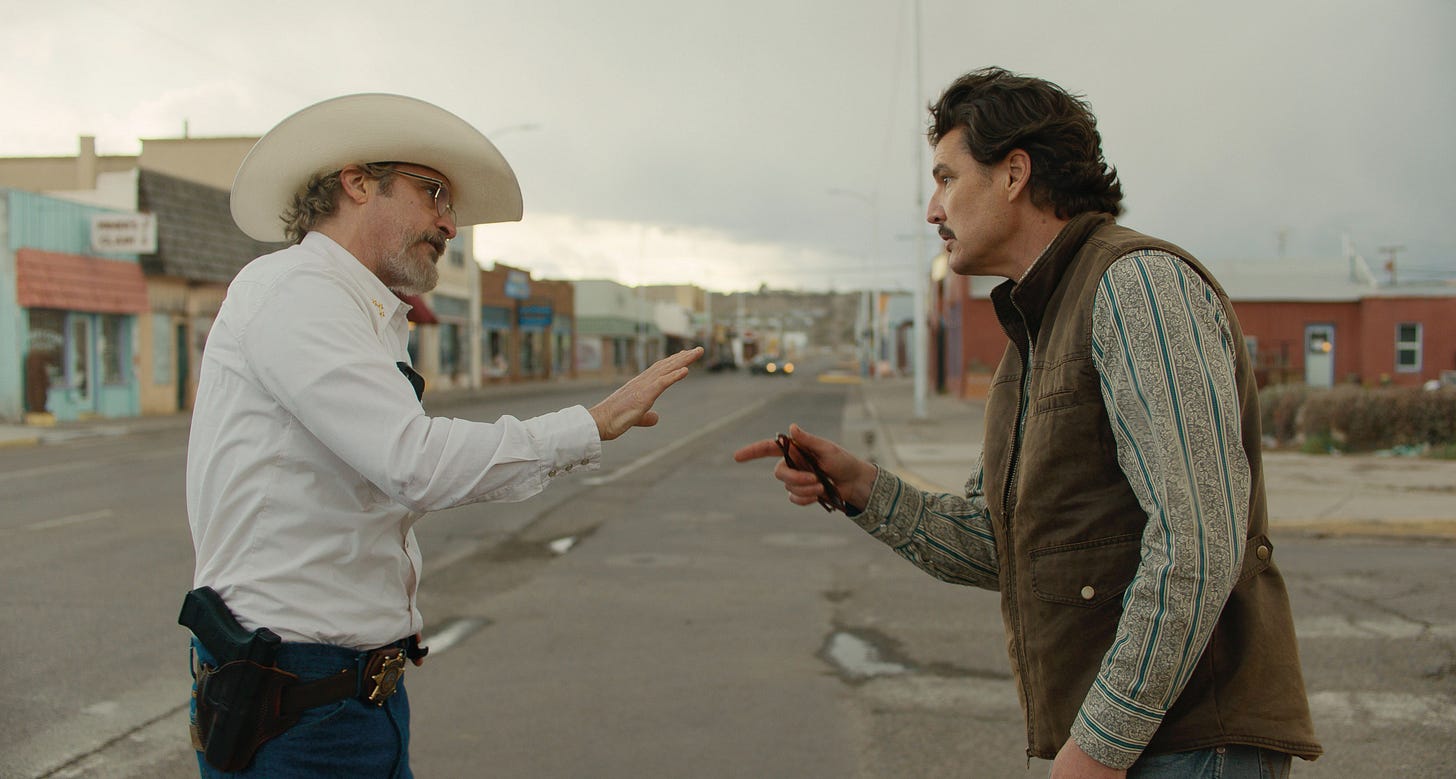‘Eddington’ Is a Satire About How Political Tribalism Is Driving Us Crazy
Finally, a writer-director makes a political satire both sides can appreciate.

Six years ago, writer-director Ari Aster — known for his spellbinding horror movies Hereditary and Midsommar — did an Ask Me Anything event on the popular web forum Reddit.
“Congrats on the breakout success! You've earned it,” wrote one user. “Although you touched on it a bit in your short films and more so in Midsommar, would you be interested in making a full on comedy at some point in your career?”
Aster replied with enthusiasm: “YES. And hopefully very soon.”
The answer tickled the readers’ curiosity. Could I guy known for his pathbreaking thrillers really make also make us laugh?
Since then, Aster has penned two comedic films, the first being 2023’s Beau Is Afraid, starring Joaquin Phoenix. Phoenix returned to work with Aster on this year’s Eddington, a biting satire about a small town in New Mexico going through the political convulsions of 2020.
Phoenix plays Sherriff Joe Cross, a law enforcement official who runs a department that totals just three officers (himself included). Eddington is a sleepy town with a tiny population, and Cross’s professional life is uneventful.
That starts to change in the summer of 2020, when Cross finds himself up against Mayor Ted Garcia (played by Pedro Pascal). Garcia is in favor of the rapidly descending COVID-19 regulatory regime while Cross is opposed.
Already annoyed by being told to wear his own face mask everywhere he goes, Cross summons up his courage and decides to run for mayor after watching an elderly man refused entry to a grocery store because he refuses to wear a face mask.
The war of words between Cross and Garcia escalates even further after the murder of George Floyd. Despite a lack of any real police violence in the quaint town of Eddington, the city’s young people feel like they have to do something after watching a man brutally murdered all over their traditional and social media feeds.
A Black Lives Matter movement springs up, antagonizing the only three cops the town has.
Cross struggles to maintain his professionalism and his personality as he feels torn between competing currents — on the one hand, his mother-in-law has fallen deep down a Q Anon-style rabbit hole of right-wing conspiracy theories, on the other hand, the town’s young people seem convinced that blockading town squares and confessing their white privilege will ignite some kind of social revolution that creates a utopia.
It would all seem so over the top if we didn’t live through the year 2020 together. After being shut in over a global pandemic, we all became addicted to media feeds that told us the country was going to hell in a handbasket. Maybe it was billionaire pedophiles, or maybe it was the all-encompassing power of white supremacy, but we had a duty to stand up and speak out.
What Eddington suggests instead is that being at each other’s throats over our political disagreements makes it more, not less, difficult to solve interpersonal disputes amongst our friends, neighbors, and communities, let alone massive societal problems.
Aster has done something with this film that is rare among political satirists in 21st century America: he’s crafted a story that everyone on all sides of the political spectrum can appreciate and learn from.
Yes, smug and hypocritical liberals are skewered endlessly by the film’s nearly two and a half hour runtime. But so are conservatives who will believe anything they read on the Internet (the Mainstream Media can’t be trusted, but a random guy you’ve never met on social media knows all). And when everyone’s engaged in the most heated but superficial culture wars, who’s really winning?
Aster asks that question, and hopefully audiences are open-minded enough to consider an answer.



Thanks for putting this in my radar, Zaid. I really like black comedies that are done well and hoping this one hits the mark.